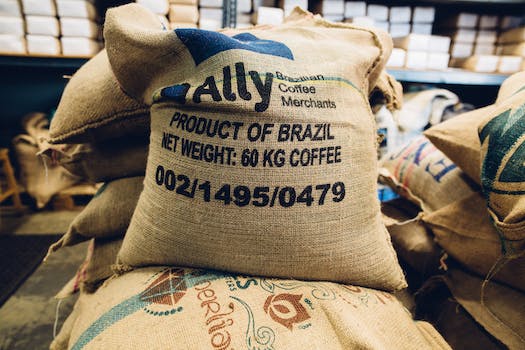How To Make Money Selling Records
“Unlock the hidden value in your vinyl collection and turn it into cash with these proven tips for selling records.”
Introduction
Selling records can be a profitable venture for those who have a passion for music and a keen eye for valuable items. With the resurgence of vinyl in recent years, there is a growing market for collectors and enthusiasts alike. In this guide, we will explore some tips and strategies for making money selling records.
Maximizing Profits: Tips for Pricing Your Vinyl Records
If you’re a vinyl record collector, you may have amassed a large collection over the years. While it’s great to have a collection of your favorite music, you may also be wondering how you can make some money from your records. Selling vinyl records can be a profitable venture, but it’s important to price them correctly to maximize your profits. Here are some tips for pricing your vinyl records.
1. Research the Market
Before you start pricing your records, it’s important to research the market. Look at online marketplaces like eBay and Discogs to see what similar records are selling for. You can also check out local record stores to see what they’re charging for similar records. This will give you an idea of what the market is willing to pay for your records.
2. Consider the Condition
The condition of your records will play a big role in determining their value. Records that are in excellent condition will be worth more than those that are scratched or damaged. When pricing your records, take the condition into account. Be honest about any flaws or damage, and adjust the price accordingly.
3. Look for Rare or Collectible Records
Some records are more valuable than others due to their rarity or collectibility. Look for records that are limited edition, signed by the artist, or have a unique cover or label. These records will be worth more than standard releases. Do some research to find out which records are considered rare or collectible.
4. Consider the Demand
The demand for a particular record will also affect its value. If a record is highly sought after by collectors, it will be worth more than a record that is less popular. Look for records that are in high demand and adjust your pricing accordingly.
5. Be Flexible
When pricing your records, it’s important to be flexible. If a record isn’t selling at a certain price, consider lowering the price to attract buyers. On the other hand, if a record is in high demand, you may be able to raise the price. Keep an eye on the market and adjust your pricing as needed.
6. Bundle Records
If you have a large collection of records, consider bundling them together to increase their value. For example, you could bundle records by a particular artist or genre. This will make the collection more attractive to buyers and increase its value.
7. Be Patient
Selling records can take time, so it’s important to be patient. Don’t be discouraged if your records don’t sell right away. Keep them listed and adjust your pricing as needed. With a little patience and persistence, you can maximize your profits from selling vinyl records.
In conclusion, pricing your vinyl records correctly is key to maximizing your profits. Research the market, consider the condition, look for rare or collectible records, consider the demand, be flexible, bundle records, and be patient. By following these tips, you can turn your vinyl record collection into a profitable venture.
Building Your Collection: Where to Find Rare and Valuable Records

If you’re a music lover, you may have considered selling records as a way to make some extra cash. But where do you start? Building a collection of rare and valuable records is the first step. Here are some tips on where to find them.
Thrift Stores and Garage Sales
Thrift stores and garage sales are great places to find records at a low cost. You never know what you might find, so it’s worth checking out these places regularly. Keep an eye out for records from popular artists or albums that were released in limited quantities. You might be able to find a gem for a few dollars.
Record Stores
Record stores are a great place to find rare and valuable records. Many stores specialize in certain genres, so you can find exactly what you’re looking for. Some stores also have a section for used records, which can be a goldmine for collectors. Don’t be afraid to ask the staff for recommendations or if they have any rare records in stock.
Online Marketplaces
Online marketplaces like eBay and Discogs are great places to find rare and valuable records. You can search for specific albums or artists and compare prices from different sellers. Make sure to read the seller’s feedback and check the condition of the record before making a purchase.
Record Fairs and Conventions
Record fairs and conventions are events where collectors and sellers come together to buy and sell records. These events can be a great way to find rare and valuable records, as well as meet other collectors. Check online for upcoming events in your area.
Estate Sales and Auctions
Estate sales and auctions can be a great way to find rare and valuable records. Many times, the records are part of a larger collection and the seller may not realize the value of certain albums. Keep an eye out for estate sales and auctions in your area and be prepared to bid on the records you want.
Final Thoughts
Building a collection of rare and valuable records takes time and effort, but it can be a rewarding experience. Keep an open mind and be willing to search in different places. You never know where you might find your next treasure. Once you have a collection, you can start selling records online or at record fairs and conventions. With a little patience and persistence, you can turn your love of music into a profitable venture.
Selling Online: The Best Platforms for Selling Vinyl Records
If you’re a vinyl record collector, you may have amassed a large collection over the years. While it’s great to have a collection of your own, you may also be interested in selling some of your records to make some extra cash. Luckily, there are many online platforms available for selling vinyl records. In this article, we’ll explore some of the best platforms for selling vinyl records online.
First up is Discogs. Discogs is a popular online marketplace for buying and selling vinyl records, CDs, and cassettes. It’s free to create an account and list your records for sale. Discogs charges a fee of 8% on the final sale price, which includes the cost of shipping. One of the benefits of using Discogs is that it has a large community of music enthusiasts who are always on the lookout for rare and hard-to-find records. This means that you may be able to sell your records for a higher price than you would on other platforms.
Another popular platform for selling vinyl records is eBay. eBay is a well-known online marketplace that allows you to sell just about anything, including vinyl records. It’s free to create an account and list your records for sale. eBay charges a fee of 10% on the final sale price, which includes the cost of shipping. One of the benefits of using eBay is that it has a large user base, which means that your records will be seen by a lot of potential buyers. However, because eBay is such a large marketplace, it can be difficult to stand out from the competition.
If you’re looking for a platform that specializes in vinyl records, then you may want to check out Vinyl Me, Please. Vinyl Me, Please is a subscription-based service that sends its members a new vinyl record each month. However, they also have a marketplace where you can sell your own records. It’s free to create an account and list your records for sale. Vinyl Me, Please charges a fee of 15% on the final sale price, which includes the cost of shipping. One of the benefits of using Vinyl Me, Please is that it has a dedicated community of vinyl record enthusiasts who are always on the lookout for new records to add to their collections.
If you’re looking for a platform that’s specifically designed for independent artists and labels, then you may want to check out Bandcamp. Bandcamp is a platform that allows independent artists and labels to sell their music directly to fans. It’s free to create an account and list your records for sale. Bandcamp charges a fee of 10-15% on the final sale price, depending on the type of product you’re selling. One of the benefits of using Bandcamp is that it has a dedicated community of music fans who are always on the lookout for new and interesting music.
Finally, if you’re looking for a platform that’s easy to use and doesn’t require a lot of technical know-how, then you may want to check out Shopify. Shopify is an e-commerce platform that allows you to create your own online store. It’s not specifically designed for selling vinyl records, but it can be a great option if you want to have more control over the sales process. Shopify charges a monthly fee, starting at $29 per month, plus a transaction fee of 2.9% + 30 cents per transaction. One of the benefits of using Shopify is that it allows you to create a customized storefront that reflects your brand and personality.
In conclusion, there are many online platforms available for selling vinyl records. Whether you’re looking for a platform that specializes in vinyl records or one that’s easy to use, there’s something out there for everyone. By using these platforms, you can turn your vinyl record
Creating a Brand: How to Market Your Record Selling Business
If you’re passionate about music and have a collection of records, you might be wondering how to turn your hobby into a profitable business. Selling records can be a lucrative venture, but it requires more than just having a good collection. You need to create a brand and market your business effectively to attract customers. In this article, we’ll discuss how to create a brand and market your record selling business.
1. Define Your Brand
The first step in creating a brand is to define what your business stands for. What makes your record collection unique? What kind of music do you specialize in? Are you a specialist in a particular genre or era? Answering these questions will help you create a brand that resonates with your target audience.
2. Create a Logo
Once you’ve defined your brand, the next step is to create a logo that represents your business. Your logo should be simple, memorable, and reflect your brand’s personality. You can hire a graphic designer to create a logo for you, or you can use online tools to create one yourself.
3. Build a Website
In today’s digital age, having a website is essential for any business. Your website should be easy to navigate, visually appealing, and provide all the necessary information about your business. You can use website builders like Wix or Squarespace to create a professional-looking website without any coding skills.
4. Use Social Media
Social media is a powerful tool for marketing your business. You can use platforms like Facebook, Instagram, and Twitter to promote your record collection, share news and updates, and engage with your audience. Make sure to post regularly and use relevant hashtags to reach a wider audience.
5. Attend Record Fairs and Events
Attending record fairs and events is a great way to connect with other collectors and potential customers. You can set up a booth and showcase your collection, offer discounts, and promote your business. Make sure to bring business cards and flyers to hand out to interested customers.
6. Offer Special Deals and Discounts
Everyone loves a good deal, so offering special deals and discounts is a great way to attract customers. You can offer discounts on bulk purchases, bundle deals, or loyalty programs. Make sure to promote your deals on your website and social media channels.
7. Provide Excellent Customer Service
Providing excellent customer service is crucial for any business. Make sure to respond to customer inquiries promptly, provide accurate information about your products, and offer refunds or exchanges if necessary. Happy customers are more likely to recommend your business to others.
In conclusion, creating a brand and marketing your record selling business requires time, effort, and creativity. By defining your brand, creating a logo, building a website, using social media, attending events, offering special deals, and providing excellent customer service, you can attract customers and turn your passion for music into a profitable business.
Navigating the Industry: Understanding Record Label Contracts and Royalties
If you’re a music lover and have a collection of vinyl records, you might be wondering how to make some extra cash by selling them. While it’s not as easy as it used to be, there are still ways to make money selling records. In this article, we’ll explore the ins and outs of the record industry, including understanding record label contracts and royalties.
First, it’s important to understand the different types of record labels. Major labels are the big players in the industry, such as Sony, Universal, and Warner Music Group. Independent labels are smaller and more niche, often specializing in specific genres or regions. DIY labels are even smaller and run by artists themselves.
When it comes to selling records, the type of label can affect your profits. Major labels often have more resources for promotion and distribution, but they also take a larger cut of the profits. Independent and DIY labels may offer more favorable royalty rates, but they may not have the same reach as major labels.
Next, let’s talk about record label contracts. When an artist signs with a label, they agree to a contract that outlines the terms of their relationship. This includes things like how much the artist will be paid in royalties, how long the contract lasts, and who owns the rights to the music.
As a seller of records, it’s important to understand these contracts because they can affect the value of the records you’re selling. For example, if an artist signed a contract with a major label that gives the label a large percentage of the profits, the value of their records may be lower than if they had signed with an independent label that offers more favorable royalty rates.
Royalties are another important aspect of the record industry. When an artist’s music is played on the radio, streamed online, or sold as a physical record, they earn royalties. These royalties are typically split between the artist and the record label, with the label taking a larger cut.
As a seller of records, it’s important to understand how royalties work because they can affect the value of the records you’re selling. For example, if an artist’s music is played frequently on the radio or streamed online, their records may be more valuable because they are earning more in royalties.
In addition to understanding record label contracts and royalties, there are a few other things to keep in mind when selling records. First, condition is key. Records that are in good condition, with minimal scratches or damage, will be worth more than those that are heavily damaged. Second, rarity is also important. Records that are rare or hard to find will be worth more than those that are widely available.
Finally, it’s important to do your research before selling records. Look up the value of the records you have, and compare prices across different platforms. Consider selling through online marketplaces like eBay or Discogs, or through local record stores or flea markets.
In conclusion, while the record industry can be complex, understanding record label contracts and royalties is key to making money selling records. By keeping in mind the type of label, contract terms, and royalty rates, as well as the condition and rarity of the records, you can maximize your profits and enjoy the thrill of sharing your love of music with others.
Conclusion
Conclusion: Selling records can be a profitable business if done correctly. It is important to have a good understanding of the market and the value of different records. Building a strong network of buyers and sellers can also help increase profits. Additionally, offering unique and rare records can attract collectors and increase sales. With dedication and hard work, selling records can be a successful and enjoyable way to make money.



